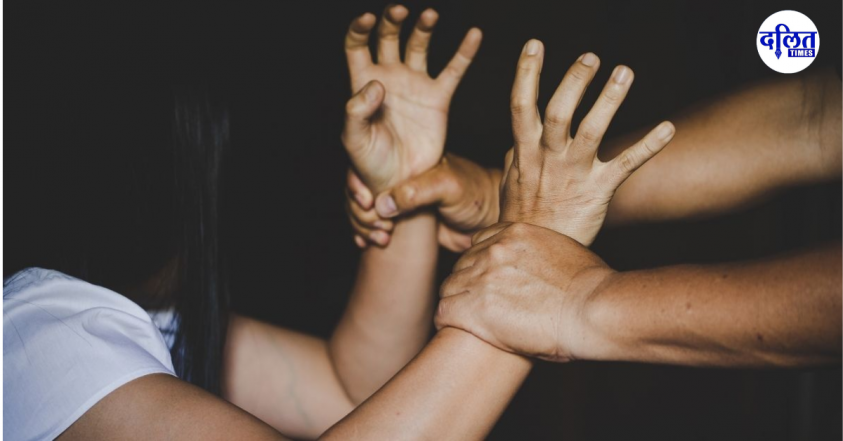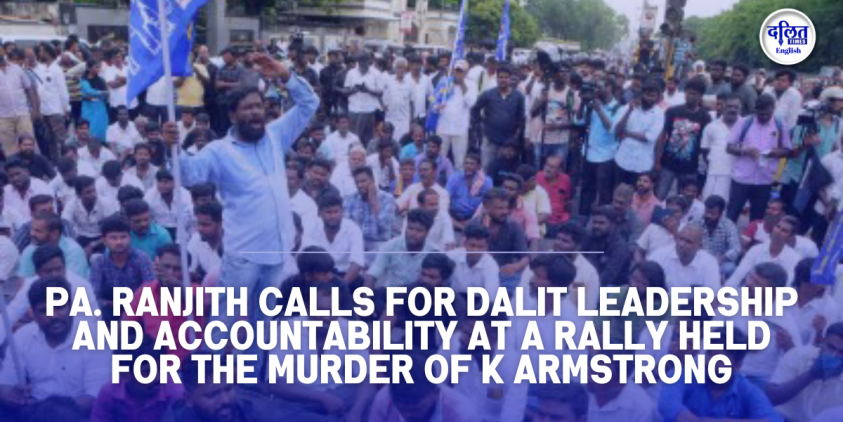- We are human beings-we are Indian citizens
- We will speak-We will write- We will remember- And we will not let them forget.
- We have dignity- we have rights- we have constitutional protection
On April 8, in the Fatehpur area of Rajasthan’s Sikar district, a young Dalit man was abducted, stripped, beaten, urinated upon, and sexually assaulted by two dominant caste men. This is not a scene from a horror film. It is the lived reality of caste in India a grotesque everyday horror scripted by the entitlement of caste power and the cowardice of the state.
For eight days, the survivor lived in silence. Not because he lacked courage, but because the structure around him thrives on silencing Bahujan pain. His family, gripped by trauma and fear of retaliation, finally approached the police on April 16. Only then was an FIR registered not because the state proactively sought justice, but because the oppressed persisted through fear and shame to demand it.
As of April 21, no arrests have been made. No sense of urgency. No shock from the administration. Just a casual nod to “ongoing investigation” while the perpetrators walk free. What kind of justice system refuses to act on an FIR that includes grave charges under the SC/ST (PoA) Act and sexual violence? A casteist one.
Also Read : Not a Scene from a Horror Film: Rajasthan’s Atrocity and the State’s Silence
According to the FIR, the survivor was watching a wedding procession when the accused lured him to a bus stand on the pretext of discussing work. From there, they abducted him to a secluded area, where they subjected him to unspeakable torture. They beat him with a bottle, hurled casteist slurs, forced him to undress, urinated on him, and sexually assaulted him and all while filming the attack to weaponise it as blackmail. This is not just violence; it is caste sadism.
The survivor told the police, “They were drunk. They hit me with a bottle, urinated on me, and used casteist abuses.” He also revealed that the accused threatened to harm his father, who works abroad, if he spoke up. In what world does a state claim it protects its citizens when a young man must weigh his father’s safety against his own dignity?
Deputy Superintendent of Police Arvind Kumar has confirmed that a medical examination was conducted and a statement recorded. And yet, the accused remain untouched by the law. What message does this send to every Dalit family in Rajasthan? That no matter how brutal the atrocity, justice will come late if at all.
This is not an isolated crime. It is a continuum. From Hathras to Sikar, Dalit bodies are targeted not merely for violence but for symbolic annihilation. It is not just the pain of wounds; it is the deliberate breaking of dignity. Nakedness, urine, cameras these are not random elements. They are caste-coded instruments of dominance.
Meanwhile, political parties posture. The Congress, now in opposition in Rajasthan, calls the incident shameful. But where was this anger when it held power? Tikaram Jully, a Dalit Leader of Opposition, speaks out now—but just days ago, he himself was “purified” out of a temple by a former BJP MLA who sprinkled gangajal to cleanse the space of his presence. That, too, barely raised eyebrows.
What unites both incidents the public humiliation of Jully and the brutalisation of the Sikar youth is the unspoken consensus of caste: that Dalits do not belong. Not in temples, not in public life, not in justice.
Also Read : April 14 in New York City: The World Bows to Babasaheb
This country that sings hymns of development and “Digital India” has yet to answer a simple question: who owns its public spaces? Who owns its temples? Its police stations? Its courts? Who does the state protect, and who must live in fear?
The Dalit survivor from Sikar is not weak. The weak are those who beat him in a group, who filmed their own crime to blackmail him, who relied on caste and alcohol to turn into monsters. And the weakest of all is the state which lacks the moral and political spine to arrest them.
As Ambedkar said, “Justice has always evoked ideas of equality, of proportion of compensation.” But in caste society, justice is measured not in proportion but in privilege. Until we end this structural impunity, until the police feel more fear of not acting than of acting, until caste is confronted head-on and not dressed up in development slogans, Dalit lives will remain disposable.
By Bindu Ammini/April 21, 2025



